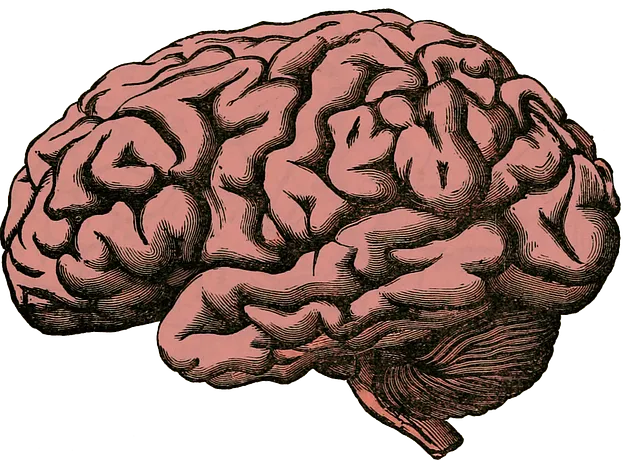The Kaiser Permanente Behavioral Health Center in Longmont employs comprehensive risk assessment and harm minimization planning to prioritize patient safety and mental health. They identify potential hazards across clinical, administrative, and environmental areas, then implement proactive strategies like Burnout Prevention, Compassion Cultivation (e.g., mindfulness meditation), and Mind Over Matter principles. Strategic initiatives, including regular reviews, continuous improvement, evidence-based practices, and provider training, foster a holistic healing environment that enhances patient outcomes and care quality at the Kaiser Permanente behavioral health center Longmont.
At the Kaiser Permanente Behavioral Health Center Longmont, risk assessment and harm minimization planning are cornerstones of patient safety. This comprehensive guide explores how the center leverages structured risk assessment to identify, mitigate, and manage potential hazards within its care settings. By delving into key components of harm minimization planning, we uncover strategies that foster a culture of continuous improvement, ensuring optimal patient outcomes at Kaiser Permanente Behavioral Health Center Longmont.
- Understanding Risk Assessment at Kaiser Permanente Behavioral Health Center Longmont
- Key Components of Harm Minimization Planning
- Implementation and Continuous Improvement Strategies for Effective Risk Management
Understanding Risk Assessment at Kaiser Permanente Behavioral Health Center Longmont

At the Kaiser Permanente Behavioral Health Center Longmont, risk assessment is a foundational process in ensuring patient safety and well-being. It involves meticulously evaluating potential hazards and their likelihood to cause harm within various aspects of behavioral health care delivery. This includes clinical practices, administrative procedures, and environmental factors. By identifying risks, the center can implement targeted strategies to minimize or eliminate these dangers, fostering a safer environment for patients and staff alike.
The center’s approach to risk assessment goes beyond mere compliance with regulations. It integrates key initiatives such as Burnout Prevention and Compassion Cultivation Practices, addressing emerging challenges in mental health care. Through a comprehensive analysis, they identify risks related to staff burnout, emotional exhaustion, and compassion fatigue, integrating these insights into their harm minimization planning. This holistic strategy ensures that the center’s Mental Health Policy Analysis and Advocacy efforts are underpinned by robust risk management practices, ultimately enhancing patient outcomes and the overall quality of care.
Key Components of Harm Minimization Planning

Harm Minimization Planning is a comprehensive strategy that focuses on proactive measures to safeguard individuals and communities, with a particular emphasis on mental health and well-being. At Kaiser Permanente behavioral health center Longmont, this approach prioritizes identifying potential risks and implementing evidence-based interventions. The process involves several crucial components:
1. Risk Identification: This step entails a thorough assessment of various factors that could lead to harm. It includes recognizing triggers related to mental health issues, substance abuse, or other behavioral challenges. By understanding these risks, the Kaiser Permanente Longmont team can develop targeted interventions.
2. Compassion Cultivation Practices and Mindfulness Meditation: Incorporating these techniques is integral to harm minimization. Compassion cultivation fosters empathy and understanding, allowing healthcare providers to connect with individuals on a deeper level. Mindfulness meditation helps reduce stress and anxiety, promoting emotional resilience. These practices not only benefit the patients but also enhance the overall therapeutic environment at the Kaiser Permanente behavioral health center.
3. Mind Over Matter Principles: Encouraging clients to take control of their mental health through cognitive strategies is another key aspect. This involves teaching them to challenge negative thoughts and replace them with positive, realistic ones. By empowering individuals with these Mind Over Matter principles, the risk of harm is significantly minimized.
Implementation and Continuous Improvement Strategies for Effective Risk Management

The successful implementation of risk assessment and harm minimization plans at Kaiser Permanente behavioral health center Longmont hinges on ongoing strategic initiatives. Regularly scheduled reviews and updates ensure that the strategies remain relevant, effective, and aligned with evolving best practices in healthcare. One key strategy involves fostering a culture of continuous improvement among all staff members, encouraging open dialogue about potential risks and innovative solutions. This includes incorporating feedback from both patients and healthcare providers to refine existing protocols.
Additionally, integrating evidence-based practices like Mindfulness Meditation into routine care can mitigate risks associated with mental health conditions. Providing Healthcare Provider Cultural Competency Training equips staff with the knowledge and skills needed to address diverse patient needs sensitively and effectively. Similarly, focusing on Coping Skills Development empowers individuals to better manage stressors, reducing the likelihood of adverse outcomes. These comprehensive approaches not only enhance patient safety but also contribute to a more holistic healing environment at Kaiser Permanente behavioral health center Longmont.
Risk assessment and harm minimization planning are vital components in ensuring the safety and well-being of patients at the Kaiser Permanente Behavioral Health Center Longmont. By understanding risk assessment, implementing key components of harm minimization, and adopting continuous improvement strategies, the center can effectively manage risks and deliver high-quality care. These measures not only protect patients but also foster a positive and supportive environment, making Kaiser Permanente Behavioral Health Center Longmont a testament to comprehensive risk management in healthcare.






